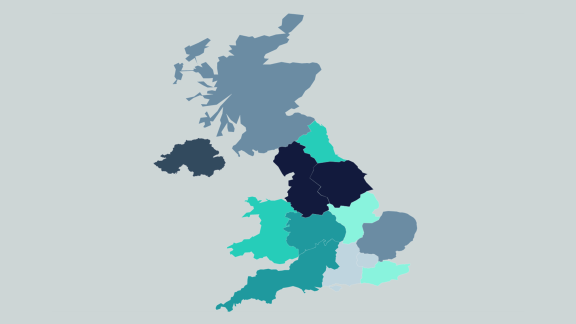How to share international recruitment success stories

Sharing news on your website, social media, or through external media statements is a great way to share success stories and good practices. However, when sharing details about international recruitment, care must be taken to ensure the communications are in line with the Code of Practice for the international recruitment of health and social care personnel in England (COP).
Top Tips
- When sharing stories of recruitment via direct applications from individuals coming from a red list country, instead of mentioning the red list country, always refer to the candidate(s) as “international recruit(s)”.
- Where applicable, reference the Code of Practice when sharing your international recruitment success stories in the media.
- Be mindful of the use of images or identifiable information, such as flags, as it is easy to overlook a flag from a red list country.
- Include a paragraph regarding ethical recruitment in your media stories. Example: “Our organisation is an ethical recruiter, and we recognise our responsibilities and adhere to the guiding principles and best practice benchmarks of the Code of Practice.”
- Do not use the NHS Employers logo as an endorsement. Recruitment organisations, agencies, and collaborations – even those that are successfully placed on the Ethical Recruiters List – are not allowed to display the NHS Employers logo on their business materials. NHS Employers role is to manage the list of organisations who have signed up to the COP but not to approve them as preferred suppliers.
Code of Practice
Any communications about the recruitment of individuals via permitted direct applications highlighting red list countries are a breach of the COP. While direct applications from these countries to employing organisations are permitted in the COP, sharing news in the media regarding this recruitment is classed as a breach as it becomes active recruitment. This is because the mention of recruitment from a red list country could be interpreted to mean that your organisation is actively recruiting from that country. If media articles mentioning specific red list countries are seen by potential applicants in those countries, this is active recruitment as it could act as an advertisement to your organisation.
This type of activity would be a breach of the Code of Practice’s third guiding principle:
“There must be no active international recruitment from countries on the red list, unless there is an explicit government-to-government agreement to support managed recruitment activities that are undertaken strictly in compliance with the terms of that agreement.”
The Code does not discriminate against individuals based on their nationality. Ethical recruitment is determined by the country from which the individual is being recruited, rather than the nationality of the individual. Individuals in a red list country can make a direct application to health and social care employers, but only in response to a vacancy that is hosted by, and recruited by, the same sponsoring organisation.
Definitions
|
By restricting active recruitment of health and social care personnel resident in countries on the red list but ensuring they can apply for jobs directly in the UK health and social care sector, the COP is balancing the negative effects from migration on countries facing severe health workforce vulnerabilities with the rights health and social care personnel have to migrate.
By following this guidance employers are in keeping with the second Best Practice Benchmark:
“All international recruitment by health and social care employers, agencies, recruitment organisations, collaborations and contracting bodies will follow good recruitment practice and demonstrate a sound ethical approach.”
Examples
Below are some examples of media breaches and guidance on how to keep in-line with the Code. The examples include, but are not limited to, how to share good practice via your website, newsletters, social media, and in the media.
Media breaches of COP | How to keep in line with the COP |
| Your organisation shares a story in a newsletter of nurses recruited via direct applications, however, it mentions they were “recruited from Nigeria” (a country on the red list). | While direct applications are in line with the COP and protect the individual’s right to migrate, mentioning they were recruited from a red list country becomes active recruitment. Rather than mentioning that the nurses have arrived from Nigeria, they should be referred to as international recruits. By doing this, you can share your success stories while protecting your organisation by not breaching the COP. |
| Your organisation posts a picture on social media of a group of overseas health care assistants in front of a background that shows flags. However, several of the flags are those of red list countries. | Careful consideration should be used when sharing pictures that include flags or other country specific identifiable information as this is deemed active recruitment, if any of the flags or identifiable information are from countries on the red list. The picture taken should be in front of a neutral background to avoid any potential breach. |
| Your organisation publishes a recruitment story on your website regarding a doctor who has recently been recruited from Pakistan, a country on the red list. | Mentioning the red list country, in this case Pakistan, is a breach of the COP. In this instance, the doctor should be referred to as an internationally recruited doctor to avoid such a breach. |
| Your organisation shares a news article with an external organisation (for example, local or national press etc.) regarding an internationally recruited radiographer from Botswana, a green list country. However, the article only mentions their nationality which is that of Nigeria, a red list country, and not where that they were recruited from. | As the COP is based on residency and not nationality, this recruitment is in line with the COP. However, the lack of clarity around where they were recruited from makes this a breach of the COP. Care should be given to drafting media stories in terms of accuracy of recruitment history and nationality. The article should have instead mentioned where they were recruited from, for example “a radiographer living in Botswana has been recruited”. |
If you would like more information regarding the Code of Practice, please contact internationalrecruitment@nhsconfed.org



